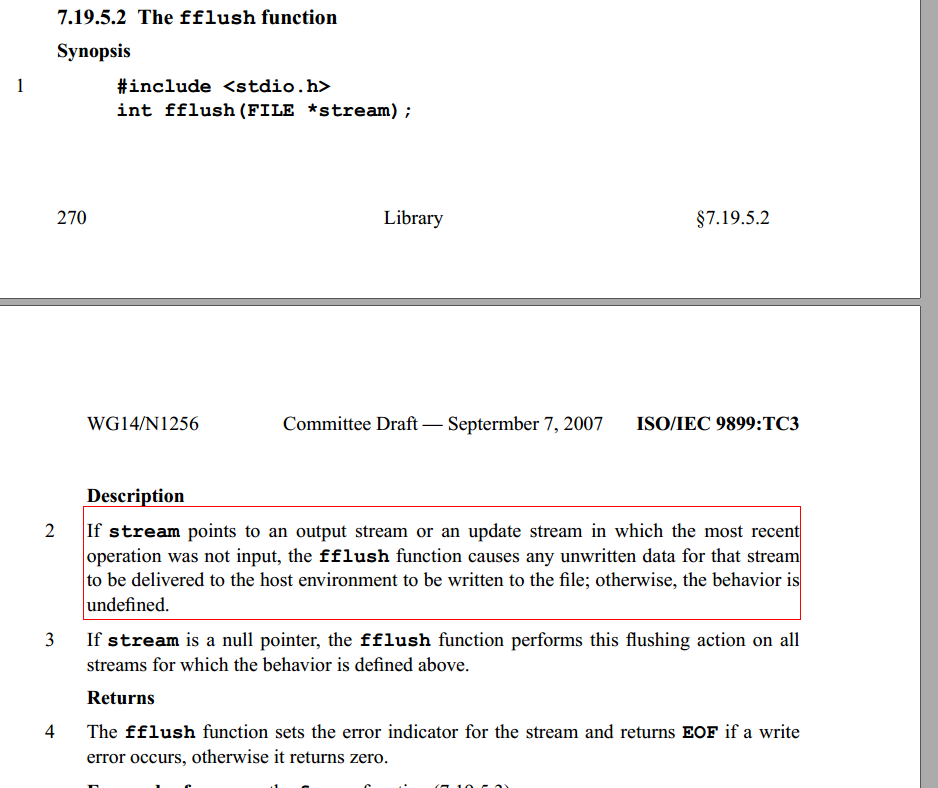70,039
社区成员
 发帖
发帖 与我相关
与我相关 我的任务
我的任务 分享
分享
#include <stdio.h>
int main()
{
int a;
char c; do
{
scanf("%d",&a);
fflush(stdin);
scanf("%c",&c);
fflush(stdin);
printf("a=%d c=%c\n",a,c); }while(c!='N');
}
root@ubuntu:~/c_programer/10_inputAndOutput$ ./a.out
1a
breaka=1 c=a
1aa
breaka=1 c=a
breaka=1 c=a fflush是用于输出流的。
fflush是用于输出流的。 while((c=gethcar()) != EOF)